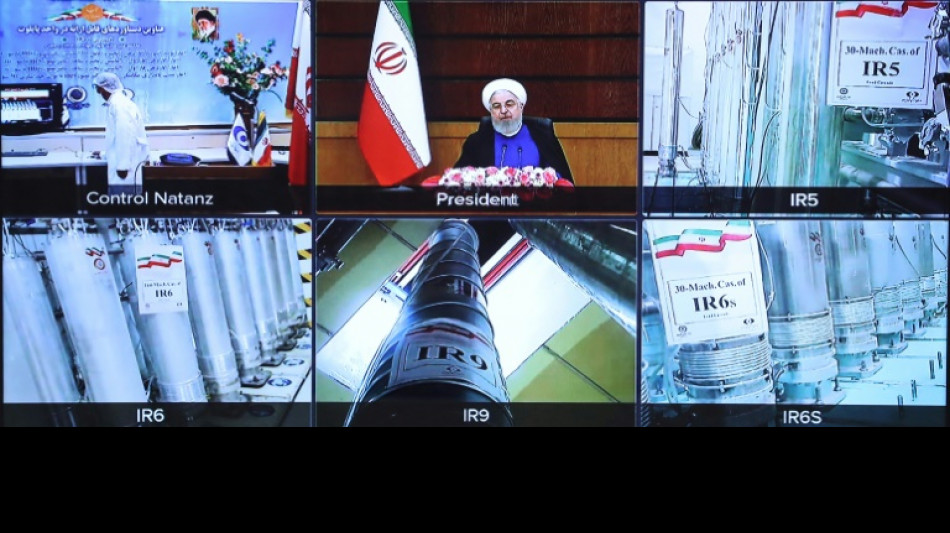
-
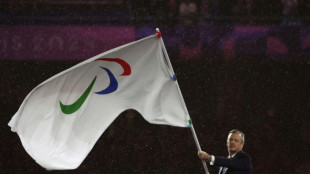 International Paralympic Committee lifts partial suspensions of Russia, Belarus
International Paralympic Committee lifts partial suspensions of Russia, Belarus
-
All Blacks hold off Wallabies to extend remarkable Eden Park record

-
 After Armani, Italian fashion houses are in flux
After Armani, Italian fashion houses are in flux
-
Marc Marquez on brink of MotoGP title as Bagnaia wins Japan sprint

-
 In-form Swiatek cruises past wildcard to start China Open title bid
In-form Swiatek cruises past wildcard to start China Open title bid
-
Protesters demand answers 11 years after Mexican students vanished
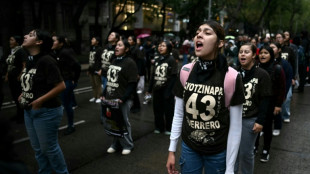
-
 Paris Fashion Week to showcase industry makeover with string of debuts
Paris Fashion Week to showcase industry makeover with string of debuts
-
'Snapback': What sanctions will be reimposed on Iran?
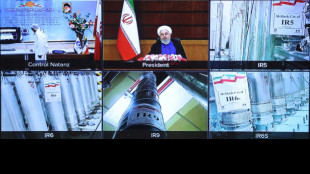
-
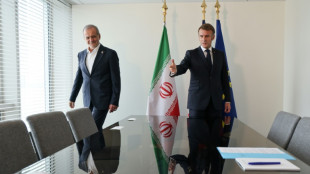 UN sanctions on Iran set to return as nuclear diplomacy fades
UN sanctions on Iran set to return as nuclear diplomacy fades
-
King Charles III to visit Vatican in October
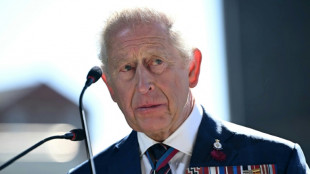
-
 Marc Marquez third on grid at Japan MotoGP as Bagnaia takes pole
Marc Marquez third on grid at Japan MotoGP as Bagnaia takes pole
-
Philippines death toll rises to 11 as storm Bualoi bears down on Vietnam
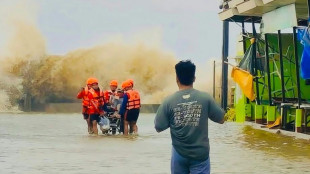
-
 Donald excited Europe handled raucous crowd well at Ryder Cup
Donald excited Europe handled raucous crowd well at Ryder Cup
-
Goals, guns and narcos: Hitmen plague Ecuador's beautiful game
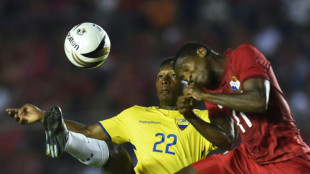
-
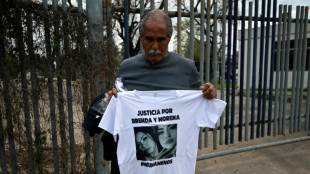 Argentine victims of live-streamed murder laid to rest on eve of protest
Argentine victims of live-streamed murder laid to rest on eve of protest
-
No USA Ryder Cup panic as fightback enters Bradley's plan

-
 USA turns to Scheffler, DeChambeau in Saturday foursomes
USA turns to Scheffler, DeChambeau in Saturday foursomes
-
Trump can't spark US comeback in visit to Ryder Cup

-
 Trump urges Microsoft to fire ex-Biden administration official
Trump urges Microsoft to fire ex-Biden administration official
-
Europe takes three-point Ryder Cup lead as US gets no Trump boost
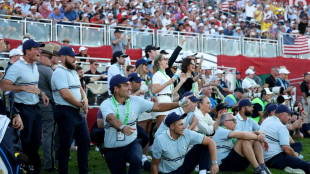
-
 Three talking points ahead of the Women's Rugby World Cup final
Three talking points ahead of the Women's Rugby World Cup final
-
Murillo sends Marseille top in Ligue 1 with late win in Strasbourg

-
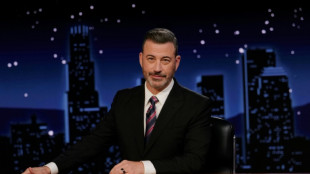 Kimmel boycott ends as US TV companies put him back on air
Kimmel boycott ends as US TV companies put him back on air
-
Kane scores twice to reach 100 Bayern goals in record time

-
 'Almost impossible': Brazilian skater Sandro Dias makes history on mega ramp
'Almost impossible': Brazilian skater Sandro Dias makes history on mega ramp
-
Trump targets more opponents after 'dirty cop' Comey
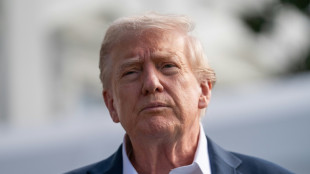
-
 Sixers' Embiid eyes consistency after injury-plagued NBA season
Sixers' Embiid eyes consistency after injury-plagued NBA season
-
More questions than answers surround Trump's TikTok deal
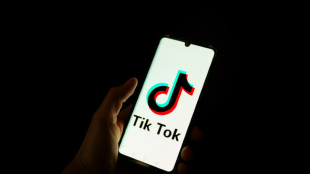
-
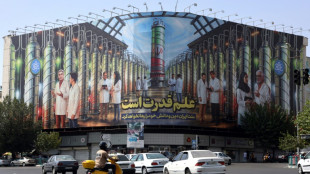 Iran sanctions look set to return as last-ditch UN push fails
Iran sanctions look set to return as last-ditch UN push fails
-
Sitting ducks: Venezuelan fishermen wary of US warships
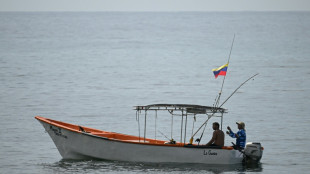
-
 Nissanka ton in vain as India edge Sri Lanka in Super Over
Nissanka ton in vain as India edge Sri Lanka in Super Over
-
An Aussie tycoon bets billions on cleaning up iron ore giant

-
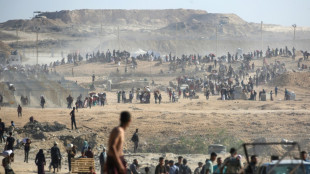 Civil defence says 50 killed in Gaza as Netanyahu vows to 'finish job' against Hamas
Civil defence says 50 killed in Gaza as Netanyahu vows to 'finish job' against Hamas
-
Canada's Corrigan leans on Olympic experience in quest for Women's Rugby World Cup gold

-
 Kolisi warns 'resilient' Boks are braced for Puma mauling
Kolisi warns 'resilient' Boks are braced for Puma mauling
-
Fearing US invasion, Venezuela to hold emergency drills
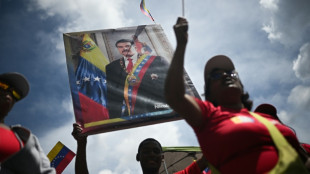
-
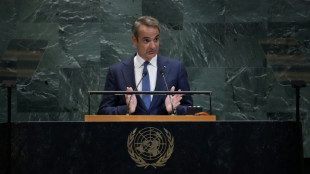 Greek PM warns Israel risks losing friends
Greek PM warns Israel risks losing friends
-
Pakistani PM appeals for India talks, hails Trump role
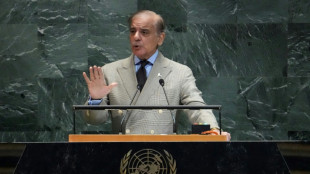
-
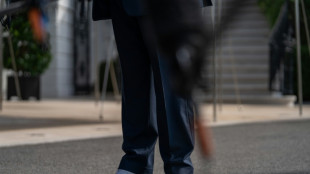 Trump aims to make America great again amid Ryder Cup woes
Trump aims to make America great again amid Ryder Cup woes
-
Trump arrives at Ryder Cup with US seeking comeback
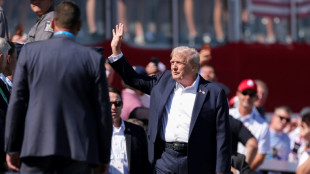
-
 Europe grabs 3-1 lead as US seeks Trump boost at Ryder Cup
Europe grabs 3-1 lead as US seeks Trump boost at Ryder Cup
-
Lufthansa planning thousands of job cuts: sources
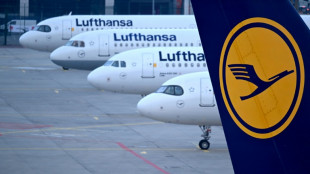
-
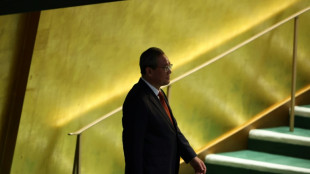 China at UN warns of return to 'Cold War mentality'
China at UN warns of return to 'Cold War mentality'
-
England great Alphonsi expects Canada to shine in Women's Rugby World Cup final

-
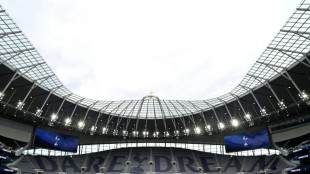 Tottenham reject interest in reported record £4.5bn sale
Tottenham reject interest in reported record £4.5bn sale
-
Man Utd boss Amorim admits uncertainty ahead of Brentford clash

-
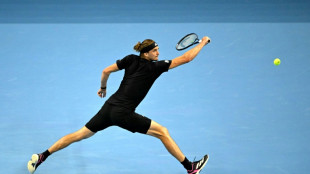 Zverev wins Beijing opener as Gauff launches title defence
Zverev wins Beijing opener as Gauff launches title defence
-
Barca duo Raphinha, Joan Garcia injured, out for PSG clash

-
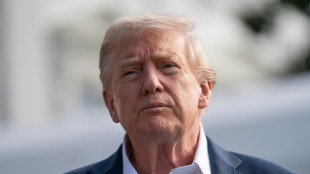 Trump hopes more opponents to be charged after 'dirty cop' Comey
Trump hopes more opponents to be charged after 'dirty cop' Comey
-
US Fed's preferred inflation gauge rises, with more cost pressures expected
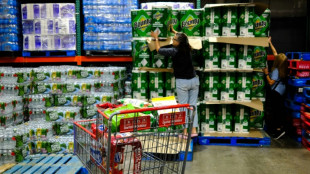

'Snapback': What sanctions will be reimposed on Iran?
A raft of UN sanctions on Iran over its nuclear program, lifted under a landmark 2015 deal, will go back into force at the end of Saturday -- barring a diplomatic breakthrough, thought to be unlikely.
The sanctions will be reimposed because the "E3" European group -- Britain, France and Germany -- triggered a mechanism in the deal alleging Tehran was not meeting its obligations.
Here are some key facts about the so-called "snapback" process:
- What do the sanctions target? -
The sanctions target companies, organizations and individuals that contribute directly or indirectly to Iran's nuclear program or the development of its ballistic missiles.
Providing necessary equipment, expertise, or funding are all grounds for sanctions.
- Swath of the economy affected -
The sanctions that will be reinstated include an embargo on conventional weapons with the prohibition of any sale or transfer of arms to Iran.
Imports, exports or transfers of parts and technologies related to the nuclear and ballistic program will be prohibited.
The assets of entities and individuals abroad belonging to Iranian persons or groups linked to the nuclear program will be frozen.
Individuals designated as participating in prohibited nuclear activities may be banned from traveling to UN member states.
UN member states will be required to restrict access to banking and financial facilities that could help Iran's nuclear or ballistic programs.
Anyone violating the sanctions regime could see their assets frozen worldwide.
- The EU had its own sanctions -
Separate measures by the European Union could now be reimposed alongside the core, global sanctions.
Their goal was to hit the Iranian economy, not only to hamper nuclear activity but also to inflict fiscal pain to force Tehran to comply.
Western nations fear that Iran will acquire nuclear weapons, which Tehran vehemently denies while defending its right to develop a nuclear program for civilian purposes.
The United States already imposes its own sanctions, including ones to prohibit other countries from buying Iranian oil, after President Donald Trump withdrew from the nuclear deal in his first term.
- How does 'snapback' take effect? -
The "snapback" process reactivates UN resolutions, but their practical implementation requires UN member states to update their laws to comply.
It will be down to the EU and Britain to pass legislation so that the sanctions can be enforced, but neither has given details on that process.
- How are sanctions enforced? -
The UN Security Council resolutions and the associated sanctions are binding -- but are regularly violated.
The big question is whether countries like China and Russia, which consider the triggering of the "snapback" illegal, might decide not to comply.
Some countries, including China, continued to trade with Iran despite the presence of US sanctions.
The European powers expect Russia will not comply with the sanctions but are unclear about how China, which imports a significant amount of oil from Iran, might react.
"There is a cost to circumventing sanctions, a political cost, but also a financial and economic cost because financial transactions become more expensive," said Clement Therme, an associate researcher at the International Institute for Iranian Studies linked to Sorbonne University.
Shipping companies are one example of businesses that will feel the pinch.
"In the case of UN sanctions, we probably won't see a full blockade, but rising costs instead," Therme added.
U.Maertens--VB
